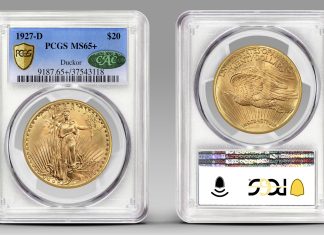 In Brussels this morning, the "Gang of Two" (Angela Merkel and Nicolas Sarkozy) were expected to outline their joint position on how to address the Greek debt situation.
In Brussels this morning, the "Gang of Two" (Angela Merkel and Nicolas Sarkozy) were expected to outline their joint position on how to address the Greek debt situation.
In Washington this morning the "Gang of Six" proposal was still lacking detail on certain aspects of health care spending but these were expected to be made available soon. Greek PM Papandreou said that EU ministers are facing a "make-it-break" moment for where Europe and the Union might be headed next.
President Obama meanwhile has indicated that ahead of America’s own "make-or-break" moment due Aug. 2nd, he might give the idea of a short-term (just days’ worth) increase in the US borrowing limit if lawmakers could come to an agreement on a broad deficit-reduction program. As these various gangs’ meetings went, so did the ebb and flow of confused monies in the global financial market this morning. Ups and downs were noted in the euro, the dollar, bonds, precious metals, and equities on both sides of the Atlantic.
Gold prices opened with a near-$8 loss in New York as details began to emerge from Brussels that some sort of resolution to the Greek problem might be in the offing. One source signaled that the ECB might be ready to accept a technical Greek default and create a fresh financial package for Greece if in fact the EU governments will guarantee Greek bonds. Any de facto default would be kept at a minimum duration in order to keep markets calm. Up to this point, the ECB has not been in a position to accept defaulted Greek bonds as collateral in market operations.
Spot gold was quoted at $1,594.00 on the bid-side and the pitched battle for the $1,600 mark kept going as aggressive spec funds kept the bids coming and countervailed most of their profit-taking brethren overnight. The yellow metal traded in a range for from $1,592 up to $1,605.00 as neither side was apparently willing to give up too much ground and was seen awaiting more concrete news out of Brussels or Washington.
Silver opened on the weak side, losing 50-cents per ounce to start at $39.62 and the white metal’s traders were also seen duking it out within the $1.25 range that it traded in overnight. The exceptions in the metals’ complex this morning were platinum and palladium; both of them traded higher right out of the starting gate in New York. The world’s third largest platinum producer- Lonmin- announced that its production costs have risen substantially (11%), even as its production of refined metal touched 483,655 ounces (up 26%) due to previously occurring strikes at its mines in May.
On the platinum production front, our friends at the analytical desk over at Standard Bank (SA) note that:
"More threats to South African platinum production emerged after the National Union of Mineworkers rejected Eskom’s (the country’s electricity provider) wage offer. This raises the probability of industrial action which could threaten the already constrained electricity supply, and consequently mining production. Currently, the country is in the grips of widespread industrial action across various industries."
"Fuel shortages have occurred in parts of the country, which the SA Chamber of Mines has already warned could disrupt mining output. Current negotiations in the platinum mining industry are likely to continue until end July. With a large disparity between employee demands and what the mines are offering, some disputes have already been declared. This could escalate into strike action by mid-August."
One more reason we noted on Bloomberg Radio this morning that the PGM niche remains in a far superior fundamentals’ based statistical market position than gold and silver are in, presently.
Platinum added $5 to rise to the $1,778.00 mark while palladium climbed $3 to open at $796.00 on the bid side. Rhodium was bid at $1,950.00 per ounce after having shed $25 in slow action on Wednesday. In the background, the US dollar was off by 0.27 on the trade-weighted index, trading at $74.42 while the euro remained above the 1.426 level, and crude oil nudged 25 cents higher to the $98.62 per barrel price tag.
US jobless claims rose by 10,000 filings last week (to 418,000) but the four-week moving average of such claims fell to 421,250, which was a three-month low. Continuing jobless claims declined by 50,000 and ended at 3.7 million as of July 9th. Networking equipment maker Cisco Systems made unwelcome headlines this week as it announced the planned shedding of about 6,500 positions (9%) from its full-time workforce in order to save $1 billion in annual costs.
Upcoming US economic data might be signaling that the country’s recovery could be on the muted side in the second half of this year. Analysts keep pointing fingers towards what they call a labor market "in a funk" and peg a spike in consumer spending to the need for employment growth. Maybe they can call in the self-proclaimed "job creators" to help the situation. Then again, their record says otherwise, so forget it.
Meanwhile, S&P has said today that it might downgrade the US’ long-term debt if the "two sides involved in the policy stalemate remain at odds on fundamental fiscal issues." Warning number 117 from source 43 and counting…Hello? Gang of Six? S&P gives the downgrade’s odds as one in two. Fitch’s ratings firm will decide on the US’ rating status next month. Its decision is also one of ‘keep’ or ‘cut’ at this point. Faites Vos Jeux.
Something else that might be worth taking into consideration when making bets (especially in commodities) is the specter of Chinese economic slowdown. Whilst the propaganda about insatiable demand for ‘stuff’ continues unabated, the reality shaping up on Chinese ground is…at odds with it. To wit; China’s factory sector shrank for the first time in one year this month.
The advance indicator known as the HSBC ‘flash purchasing managers’ index’ fell to 48.9 as the Chinese economy underwent its fastest contraction in nearly two-and-a-half years. The formal gauge’s reading will come on August 1st in the form of the Chinese Manufacturing PMI. A reading of 48.9 undeniably represents contraction; that is a fact. That, however, is not a fact that the commodity propaganda gang is willing or ready to admit or take into account.
The slowdown is significant enough for the IMF to worry, however. This past week has seen quite a flow of official advice being ping-ponged back and forth between China and the rest of the world. While China yesterday reiterated its desire for the US to get its fiscal act together, the IMF today lobbed a piece of advice in Beijing’s direction; it said that the country needs to (make that: must) rebalance its economy, revalue the yuan, improve living standards, address its property bubbles, contain inflation, etc.
How long can a laundry list be? Long enough for that Chinese laundry to be very busy for quite some time to come… It is said that Chinese authorities ‘welcomed" the report. The IMF flat-out warned that a Chinese hard-landing will inevitably have deleterious spillover effects on the rest of the global economy. If all of this sounds eerily familiar, you might wish to revisit our commentary from this date (not that long ago) on the subject. Mr. Shilling told you so.
In closing, a little piece of myth-busting and contrarian-flavored factoid: despite dire warnings/expectations/predictions that Japan would implode following the Sendai quake, the country’s trade balance swung to a surplus in June. Economists polled by Dow Jones had anticipated a 4% fall in exports, largely on account of what happened in May; the fact that Japan had posted its largest-ever trade gap. So much for absolute predictions and welcome to the world where surprises come precisely from the place you least expect them to.
Until tomorrow, keep alert for other surprises and myth-busting news. There is gang "graffiti" all over the walls.
Jon Nadler
Senior Analyst
Kitco Metals Inc.
North America
Disclaimer: The views expressed in this article are those of the author and may not reflect those of Kitco Metals Inc. The author has made every effort to ensure accuracy of information provided; however, neither Kitco Metals Inc. nor the author can guarantee such accuracy. This article is strictly for informational purposes only. It is not a solicitation to make any exchange in precious metal products, commodities, securities or other financial instruments. Kitco Metals Inc. and the author of this article do not accept culpability for losses and/ or damages arising from the use of this publication.
www.kitco.com and www.kitco.cn
Blog: http://www.kitco.com/ind/index.html#nadler










